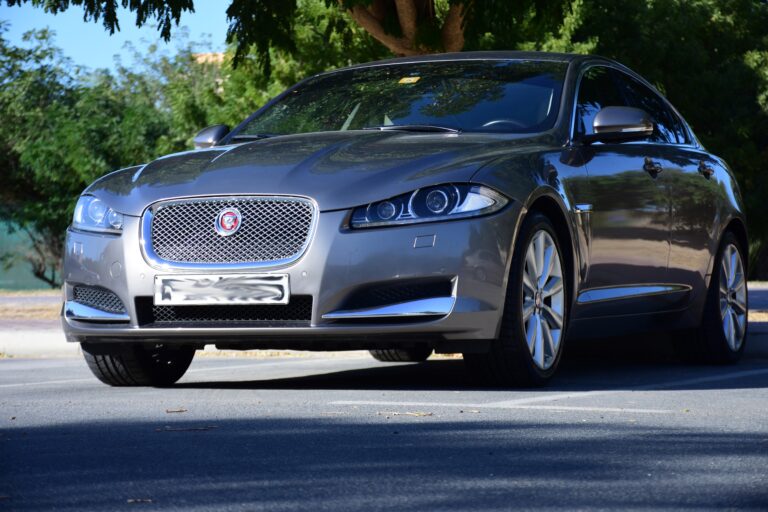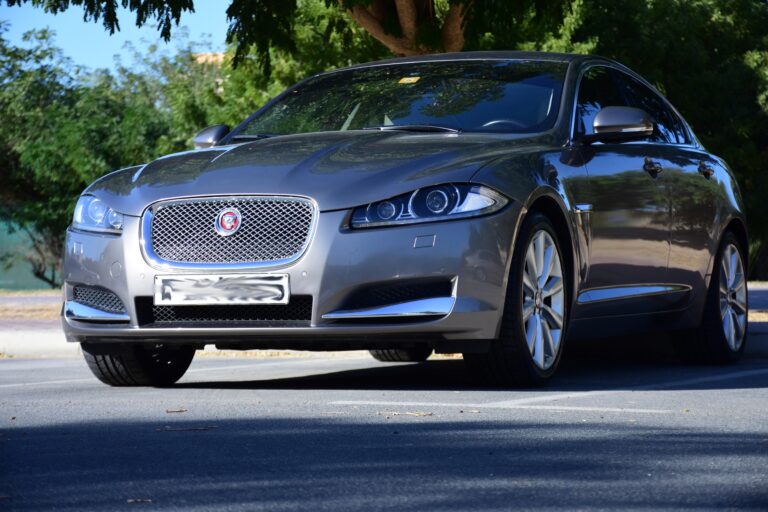Car Alarm Brands: A Comprehensive Guide to Protecting Your Vehicle
Car Alarm Brands: A Comprehensive Guide to Protecting Your Vehicle cars.truckstrend.com
In an age where vehicle theft remains a persistent concern, a reliable car alarm system is no longer a luxury but a crucial component of automotive security. Far beyond a simple siren, modern car alarm brands offer sophisticated layers of protection, integrating cutting-edge technology to deter thieves, alert owners, and even assist in vehicle recovery. Choosing the right car alarm system, however, can be a daunting task given the myriad of brands, features, and price points available. This comprehensive guide aims to demystify the world of car alarm brands, providing you with the knowledge to make an informed decision and safeguard your valuable asset.
Why Car Alarms Matter: Beyond Just Noise
Car Alarm Brands: A Comprehensive Guide to Protecting Your Vehicle
At its core, a car alarm system is designed to deter theft and notify vehicle owners of potential tampering or intrusion. The importance of a robust alarm system extends far beyond merely making noise:
- Deterrence: The primary function. The visible presence of an alarm system, often indicated by flashing lights or window stickers, can be enough to make a potential thief reconsider.
- Notification: Modern alarms don’t just sound a siren; many can notify you directly via a remote pager or smartphone app, even when you’re out of earshot.
- Vehicle Recovery: Systems with GPS tracking capabilities can provide real-time location data, significantly increasing the chances of recovering a stolen vehicle.
- Insurance Benefits: Many insurance providers offer discounts on comprehensive coverage for vehicles equipped with approved alarm and security systems, making it a cost-effective investment in the long run.
- Peace of Mind: Knowing your vehicle is protected by a reliable system offers invaluable peace of mind, whether it’s parked overnight or left unattended in a busy lot.

Understanding the Landscape: Types of Car Alarm Systems
Car alarm systems have evolved significantly, moving beyond basic trigger-and-siren setups. Understanding the different types available will help you identify what best suits your needs:
- Basic Alarms: These are the simplest systems, typically featuring a siren and flashing lights activated by door, hood, or trunk triggers, and often a basic shock sensor. They are an entry-level deterrent.
- Remote Start Alarms: Integrating the convenience of remote engine start with security features. These systems allow you to start your car from a distance, often with keyless entry, while still providing protection against unauthorized access.
- Two-Way Pager Alarms: A significant upgrade from basic systems, two-way alarms communicate with a dedicated remote pager. If the alarm is triggered, the pager will alert you, often displaying the specific zone that was violated (e.g., door open, shock sensor).
- GPS Tracking Alarms: These advanced systems include a GPS module that allows you to track your vehicle’s location in real-time via a smartphone app or web interface. Some also offer geofencing, speed alerts, and detailed travel history.
- Immobilizers: While often integrated into alarm systems, immobilizers are distinct. They prevent the engine from starting without the correct key or transponder, making it nearly impossible to hotwire the vehicle. Many modern cars have factory-installed immobilizers, but aftermarket ones offer enhanced security.
- Smartphone-Integrated Alarms: These systems leverage your smartphone as the primary interface. Via a dedicated app, you can arm/disarm the alarm, receive alerts, remote start the vehicle, track its location, and even control other features like door locks or windows.


Top Car Alarm Brands: A Closer Look
The market is home to several reputable car alarm brands, each offering a range of products from basic to highly advanced. Here are some of the most prominent players:
- Viper (by Directed Electronics): Arguably the most well-known name in car security, Viper offers an extensive lineup of alarms, remote start systems, and GPS tracking solutions. They are renowned for their reliability, advanced features (like SmartStart smartphone integration), and wide availability. Viper systems often feature multi-stage shock sensors, tilt sensors, and digital security encryption.
- Compustar: A highly respected brand known for its robust, high-performance systems. Compustar specializes in remote start and two-way paging alarms, often boasting impressive range and durability. Their premium systems offer advanced features like DroneMobile smartphone control, proximity unlocking, and customizable security settings.
- Clifford (by Directed Electronics): Another premium brand under the Directed Electronics umbrella, Clifford alarms are known for their sophisticated security features, including advanced anti-carjacking systems, dual-zone sensors, and unique "BlackJax" ignition kill technology. They cater to users seeking maximum protection.
- Avital (by Directed Electronics): Positioned as a more budget-friendly option from Directed Electronics, Avital offers reliable basic and remote start alarm systems. They provide a good balance of essential security features and affordability, making them a popular choice for those on a tighter budget who still want trusted brand quality.
- Python (by Directed Electronics): Similar to Clifford and Viper, Python offers a range of high-performance security and remote start systems. They are known for their reliable performance and integration with Directed’s SmartStart technology.
- Pandora: A European brand gaining popularity globally, Pandora systems are known for their extreme sophistication, advanced encryption, integrated GPS/GSM modules, and incredibly low power consumption. They often feature multi-frequency communication and extensive sensor options, appealing to those seeking the highest level of security.
Key Features to Consider When Choosing a Brand
When evaluating different car alarm brands and models, consider the following features to ensure the system meets your specific security needs:
- Sensors: Look for multi-stage shock sensors (detecting light taps and heavy impacts), glass break sensors, tilt sensors (detecting towing or wheel theft), and proximity sensors.
- Two-Way Communication: Essential for receiving alerts and system status updates on your remote control or smartphone.
- Remote Start & Keyless Entry: Adds convenience, allowing you to warm up/cool down your car and unlock doors from a distance.
- GPS Tracking: Crucial for vehicle recovery and monitoring, often with geofencing capabilities.
- Immobilization: Prevents the engine from starting without proper authorization.
- Smartphone Integration: Offers ultimate convenience and control via a dedicated app.
- Siren Output: Decibel level and tone options.
- Battery Backup: Ensures the alarm functions even if the car battery is disconnected.
- Anti-Carjacking Features: Such as starter kill or ignition interrupt.
- Installation Complexity: Some systems are designed for DIY, while others require professional installation.
- Warranty & Customer Support: Important for long-term reliability and assistance.
Choosing the Right Brand for Your Needs: Practical Advice
- Assess Your Budget: Car alarms range from under $100 for basic systems to over $1000 for high-end, feature-rich units. Determine how much you’re willing to invest.
- Identify Your Core Needs: Do you just need basic deterrence, or do you require remote start, GPS tracking, or smartphone control? Prioritize the features most important to you.
- Consider Your Vehicle: Some older vehicles might not be compatible with the most advanced digital systems without extensive modification. Consult with installers or check product compatibility lists.
- Read Reviews and Research: Look for independent reviews, user testimonials, and professional ratings for the brands and specific models you’re considering. Pay attention to reliability, false alarm rates, and customer service experiences.
- Professional Installation is Key: While some basic alarms can be DIY, complex systems (especially those with remote start or immobilizers) should be installed by certified professionals. Proper installation ensures optimal performance, prevents false alarms, and avoids damage to your vehicle’s electrical system. Many alarm brands offer a warranty only if professionally installed.
- Don’t Forget Maintenance: Periodically test your alarm system, check battery levels in your remote, and ensure all sensors are functioning correctly.
Potential Challenges and Solutions
- False Alarms: Often caused by overly sensitive shock sensors, loose wiring, or environmental factors.
- Solution: Adjust sensor sensitivity, ensure professional installation, check for loose components.
- Battery Drain: Improper wiring or continuous use of advanced features can drain your car battery.
- Solution: Professional installation with proper wiring, consider systems with low-power modes, periodically check battery health.
- Signal Interference: Remote control range can be affected by urban environments or other electronic devices.
- Solution: Use two-way systems with stronger signals or smartphone integration which relies on cellular networks.
- Installation Complexity: Advanced systems can be very complex to install correctly.
- Solution: Always opt for certified professional installation, especially for systems involving engine immobilizers or remote start.
Car Alarm Brands: Price Table
Please note: Prices are approximate and can vary significantly based on features, installation costs, and retailer. Installation typically adds $150-$500+ to the cost.
| Brand | Model Examples (Typical) | Key Features (Common) | Average Price Range (System Only, USD) | Description |
|---|---|---|---|---|
| Viper | 3100V, 5706V, DS4+ | Two-way communication, remote start, shock/tilt sensors, SmartStart compatibility, keyless entry | $150 – $600+ | Industry leader, wide range of reliable systems from basic to highly advanced, excellent smartphone integration via SmartStart. |
| Compustar | CS4900-S, T9, T12 | Long-range two-way remote, remote start, shock/tilt sensors, DroneMobile compatibility, push-to-start | $200 – $800+ | Renowned for robust, high-performance remote start and security systems with impressive range and durability. Premium feel and features. |
| Avital | 3100L, 5305L | Basic alarm, remote start, keyless entry, shock sensor | $80 – $250 | Budget-friendly option from Directed Electronics, offering essential security and remote start features with trusted brand reliability. |
| Clifford | Matrix 330X, G5 Series | Advanced anti-carjacking, dual-zone sensors, BlackJax anti-theft, two-way communication | $300 – $700+ | Premium brand focusing on sophisticated security and anti-theft technologies, ideal for maximum protection and high-value vehicles. |
| Python | 3303P, 5706P | Similar to Viper/Clifford, remote start, two-way, SmartStart compatibility, shock sensors | $200 – $550+ | Another strong brand under Directed Electronics, offering reliable security and remote start features with advanced technology integration. |
| Pandora | Light Pro, Smart Pro, Elite | Advanced encryption, multi-frequency comms, integrated GPS/GSM, low power, extensive sensors | $400 – $1500+ | High-end European brand known for extreme sophistication, military-grade encryption, and comprehensive vehicle control via smartphone. |
Frequently Asked Questions (FAQ)
Q1: Are car alarms really worth it?
A1: Yes, absolutely. While no system is 100% foolproof, a good car alarm significantly deters thieves, alerts you to tampering, and can aid in vehicle recovery. The peace of mind and potential insurance savings alone often justify the investment.
Q2: How much does a good car alarm system cost?
A2: The cost varies widely. Basic alarms can be under $100, while advanced systems with remote start, GPS, and smartphone integration can range from $300 to over $1000, not including professional installation which can add $150-$500+.
Q3: Can I install a car alarm myself?
A3: Basic alarm systems might be DIY-friendly for those with electrical experience. However, for remote start, immobilizers, or more complex systems, professional installation is highly recommended. Improper installation can damage your vehicle’s electronics or render the alarm ineffective.
Q4: What’s the difference between a one-way and two-way alarm?
A4: A one-way alarm sends signals only from the remote to the car (e.g., arm/disarm). A two-way alarm communicates both ways: you send commands to the car, and the car sends status updates and alerts back to your remote or smartphone. Two-way systems offer much better awareness.
Q5: Do car alarms prevent car theft entirely?
A5: No alarm system can guarantee 100% theft prevention. Determined thieves can often bypass systems. However, a quality alarm system acts as a strong deterrent, makes the theft much harder and riskier, and significantly increases the chances of you being alerted or the vehicle being recovered. Layered security (e.g., alarm + immobilizer + GPS tracker + physical deterrents) is the most effective approach.
Q6: What is "SmartStart" or "DroneMobile"?
A6: These are brand-specific technologies (Viper’s SmartStart, Compustar’s DroneMobile) that allow you to control and monitor your car alarm system using a smartphone app, typically requiring a subscription. They offer features like remote start, lock/unlock, GPS tracking, and real-time alerts from virtually anywhere with cellular service.
Conclusion
Choosing the right car alarm brand and system is a critical step in securing your vehicle. By understanding the different types of alarms, the key features offered by leading brands, and the practical considerations for selection and installation, you can make an informed decision that provides peace of mind and robust protection. Invest wisely in a reputable brand and consider professional installation to ensure your vehicle remains safe and sound on the road, and in the parking lot.






